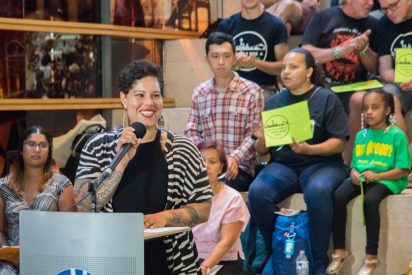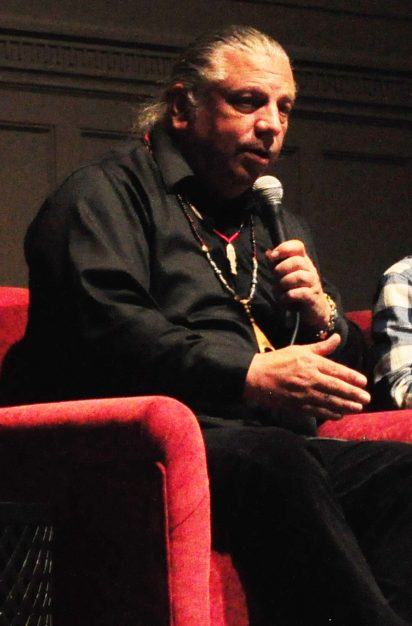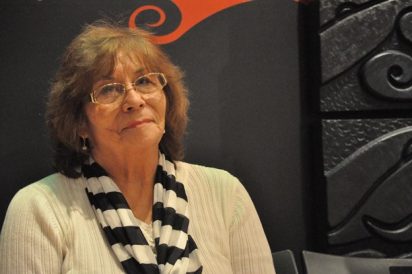Four Ways Seattle Environmentalists Get Involved
Seattle has a reputation as an environmentally conscious city. Known for its picturesque natural beauty, social liberalism and perennial appreciation of flannel, Seattle certainly looks the part. Crunchy appearances and early adoption of the now-statewide plastic bag ban notwithstanding, city-level environmental policy proposals remain a niche interest, especially compared to juicy news like outspoken socialists on City Council or our soda tax. Meanwhile, state-level environmental policy is a hot-button issue, highlighting strong, often opposing priorities across the politically heterogenous populace. For instance, Washington struck down a carbon tax and remains deeply divided about its hydroelectric dams. Amid this apparent environmental policy gridlock, however, activists and advocates continue to push for change at a local level. Here are four ways some of Seattle’s residents across the political spectrum have organized in 2021:

Called for a Green New Deal
Nonprofits 350 Seattle and Got Green are at the forefront of the push for a Seattle Green New Deal. The Seattle Green New Deal prioritizes environmental justice, creation of well-paying green jobs, and elimination of pollution by 2030. It was endorsed by the entirety of the City Council in 2019, but subsequently sidelined by COVID budget deficits.
Mayor Durkan has since proposed an allotment of $14 million for Green New Deal type policies in the $7 billion 2022 city budget, about 0.2% of the total. Most of the budget would be used to finance programs directed toward the unhoused population, invest in economic recovery and address public safety concerns. The third point would be achieved in part by increasing police recruitment and hiring 35 new officers, a contentious move. Green New Deal advocates 350 Seattle have, for the most part, endorsed politicians farther left than Mayor Durkan, who is not seeking reelection. Longtime King County Executive incumbent Dow Constantine is among their more politically moderate picks. Their other endorsements include mayoral candidate and current Seattle City Council President Lorena González and attorney, activist and City Council candidate Nikkita Oliver, who worked directly with 350 Seattle to advance the Green New Deal.

Continued to Clean up the Duwamish Waterway
The Duwamish River was the target of extensive reengineering efforts during its colonization. American settlers quickly established the river as an industrial hub, generating pollution so severe that the Duwamish Waterway has been designated a Superfund site for the past twenty years. The Duwamish Tribe works with the Duwamish River Cleanup Coalition to remediate the waterway and have partnered with the Seattle Parks Department to reforest upland property, playing a key role in ongoing restoration efforts. The Cleanup Coalition emphasizes a community-led approach to climate justice, holding regular events and highlighting opportunities for youth.

Advocated for Federal Recognition of the Duwamish Tribe
While the Tribe was central to early Indigenous interactions with American settlers and was the first signatory to the Treaty of Point Elliott, the Duwamish were ruled ineligible for federal recognition in 1974. Following the conclusion of the Fish Wars, the Tribe was excluded from Elliott Treaty fishing rights under the landmark Boldt decision on the basis of perceived breaks in Tribal continuity. The federally recognized Muckleshoot and Puyallup Tribes, some of whose members are descended from the Duwamish Tribe, strongly oppose separate Duwamish recognition on these grounds. Advocates for Duwamish recognition, including Chief Si’ahl descendant Cecile Hansen, have spent decades disputing the accusation. Upon her election as Duwamish Tribal Chairwoman in 1975, Hansen’s top priorities were to build a longhouse to serve as a cultural center for the Duwamish people and to reclaim their land and fishing rights as treaty signatories. They compiled documentation of continuous Tribal identity and filed for federal recognition in 1977. The petition hung in limbo for nearly twenty years, until it was finally denied in 1996. The denial was reversed in the final days of the Clinton administration, only to be reversed yet again, at the start of the Bush administration.
In the two decades since, Tribal members have tirelessly advocated for reinstatement of federal recognition to reclaim their full rights. Tribal member James Rasmussen notes that the Biden administration may finally mark a turning point with the appointment of Secretary of the Interior Deb Haaland. At the local level, the proposed Seattle Green New Deal specifically acknowledges the Duwamish Tribe as a vital co-manager of the region, and Indigenous Tribes more broadly as central to environmental equity.
Looked to Youth-led Activism
Youth in general are known to be highly invested in climate advocacy. Seattle’s youth are no exception. From filing suit against the Department of Ecology for failure to act on climate change to throwing their weight behind the federal suit for the same, Washington and Seattle youth have been highly visible in climate activism. As the dust settled around the dismissal of the lawsuits, the next generation of youth activists created a wealth of teaching materials and organized demonstrations. Washington Youth for Climate Justice created a series of online presentations discussing environmental racism and colonialism, youth priorities for climate policy and the contributions of BIPOC and queer activists. Earlier this year, Youth Shall Lead, the architects of the Seattle Children’s March, held an event at the prestigious Town Hall Seattle.